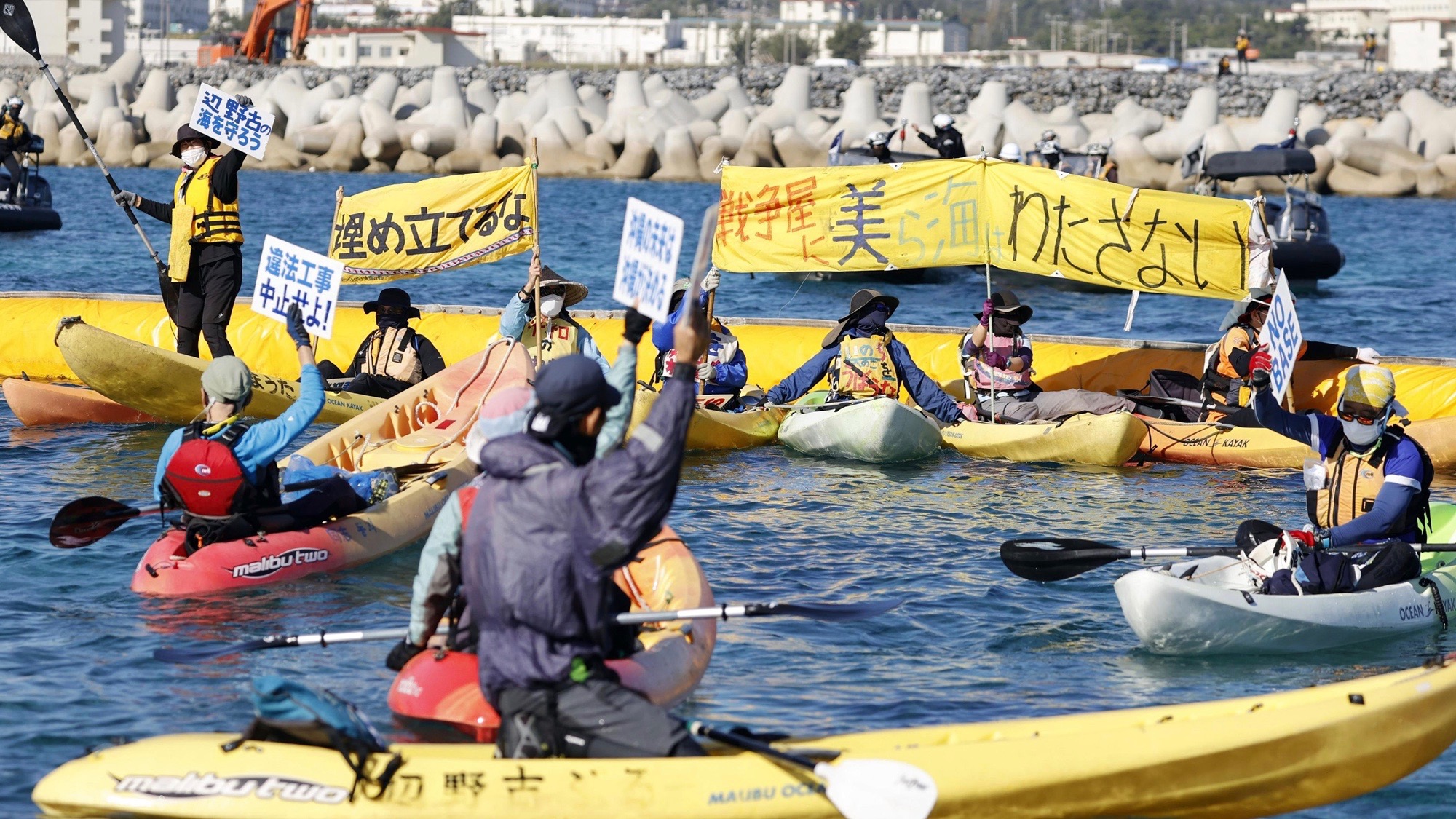The United States’ extensive military presence in Japan is coming under strong political scrutiny after a surge in COVID-19 infections. On Saturday, January 8, Japan reported more than 8,000 cases in a single day, the second time since September 2020, compared to just 456 reported on January 1.
Local officials and Japanese opposition groups have blamed the US military bases in the country for being largely responsible for the rise in cases. Unlike previous waves that affected major metropolitan cities like Tokyo and Osaka, a significant number of the new infections are being reported from regions that house US troops stationed in Japan.
On Saturday, when Japan recorded the highest daily reported numbers in months, the Okinawa prefecture which houses over 70% of all the US military personnel in Japan reported over 1,700 cases. Okinawa had reported only 52 cases on January 1. This rise was the highest of any prefecture, accounting for a fifth of all cases across Japan, even though the island group represents barely over 1% of the national population. Okinawa governor Denny Tamaki categorically stated in a press conference last week that “US military bases are one of the major causes of the spread of infections.”
A similar steep rise in COVID-19 infections was reported in two other prefectures that house some of the larger US military bases – Hiroshima, which went from 21 on January 1 to close to 550 on Saturday, and Yamaguchi, which reported only a handful of cases between November and December but has now started reporting more than a 100 cases a day.
Barely a week into the new year, these three prefectures were put under a state of partial emergency by their respective governments for the first time in months. Reports have also emerged that US military bases have been lax in the implementation of counter-pandemic protocols.
According to reports, post-arrival and pre-departure testing as required by Japan, and mandatory quarantines which the US unilaterally brought down from 14 days to 10 were also not followed rigorously by the US military personnel. The usage of masks inside the base and isolation of symptomatic individuals was also reportedly not followed.
Japan hosts over 50,000 US troops in several overseas bases on its territory. Under the Status of Forces Agreement signed by the two nations in 1960, Japan has almost no authority to impose local laws and restrictions or monitor the US forces stationed in the country.
Nevertheless, after a major public backlash caused by the rise in cases, a joint agreement by Japan and the US imposed severe restrictions on mobility of US troops inside the bases for 14 days, except for “essential” activities, starting from Monday, January 10.
Anger and widespread opposition to the continued presence of the US military in Japan has been revived during the pandemic. “The root cause lies in the humiliating Status of Forces Agreement,” said Kazuo Shii, leader of the Japanese Communist Party (JCP), which has for long demanded the relocation and even outright withdrawal of US troops from Japan. “We strongly demand a drastic revision,” Shii said
Okinawa has been the epicenter of the opposition to US military presence in Japan since it houses most of the troops. Thousands participated in protests against recent plans of building a new base for the relocation of a US air force base – US Marine Corps Air Station Futenma – in Ginowan City to Henoko near the city of Nago.
Since at least 2014, opponents of the US bases have won two consecutive gubernatorial elections. Massive protests were witnessed across Okinawa with thousands of locals expressing outrage at rising crimes and other issues arising from the foreign military’s presence. On December 14, protesters in canoes took out a protest in Nago against the land reclamation work for the planned relocation in Henoko.
The recent COVID-19 surge and the role of the US military base may affect the mayoral election in Nago scheduled for January 23. The city was the flashpoint for local opposition against Camp Futenma’s relocation. It already houses one of the largest US bases, Camp Schwab.
The mayoral race will be between incumbent Taketoyo Togcuhi, supported by the ruling conservative Liberal Democratic Party which also supports the continued presence of US forces in Japan, and Yohei Kishimoto, an opposition candidate supported by the opposition Constitutional Democratic Party and the JCP, along with governor Tamaki.





